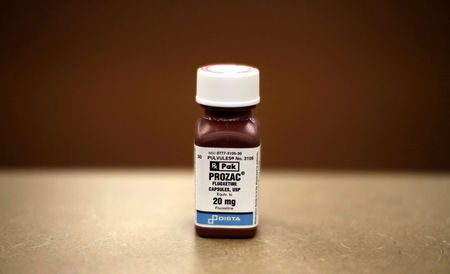
INDIANAPOLIS and BOSTON – Eli Lilly and Company (NYSE:), a pharmaceutical giant with a market capitalization of $720 billion and a “GOOD” InvestingPro financial health rating, has entered into a definitive agreement to acquire Scorpion Therapeutics’ PI3Kα inhibitor program, including the promising STX-478, a potential treatment for hormone-positive breast cancer. STX-478 is currently in a Phase 1/2 clinical trial and targets a mutation found in 30-40% of such cancers.
Jacob Van Naarden, Lilly Oncology’s executive vice president and president, highlighted the need for effective treatments targeting the PI3Kα pathway, which is significant in hormone-positive breast cancers. He expressed optimism that STX-478’s selective profile could lead to better disease control and tolerability, potentially improving patient outcomes when combined with standard therapies.
The acquisition could total $2.5 billion, with payments contingent upon regulatory and sales milestones. Following the acquisition, Scorpion will establish a new entity for its non-PI3Kα assets and personnel, with Lilly holding a minority stake. This new company, led by Scorpion’s current management and Dr. Friedman, aims to continue developing precision medicines.
Scorpion’s president and CEO, Adam Friedman, M.D., Ph.D., believes the acquisition by Lilly will expedite the development of STX-478 and enhance care for patients with solid tumors driven by PI3Kα mutations. He regards the deal as a testament to Scorpion’s expertise and drug discovery capabilities.
The transaction is subject to customary closing conditions. Financial advisors for the deal include Citi for Lilly and Centerview Partners LLC and Morgan Stanley (NYSE:) for Scorpion. Legal counsel is provided by Ropes & Gray LLP for Lilly and Kirkland & Ellis LLP for Scorpion.
The financial impact of the acquisition will be reflected in Lilly’s future financial results and guidance, following the determination of the accounting treatment according to Generally Accepted Accounting Principles (GAAP) upon closing.
This article is based on a press release statement.
In other recent news, Eli Lilly has been the focus of several analyst notes. Truist Securities reaffirmed their Buy rating on the pharmaceutical giant’s shares, expressing confidence in the company’s obesity drugs, Mounjaro and Zepbound, and their performance in the cardiometabolic sector. The firm’s revenue and EPS projections for 2024, 2025, and 2026 are $45.6 billion, $55.4 billion, and $64.1 billion, respectively, with EPS estimates at $13.19, $22.64, and $29.03.
Simultaneously, Citi maintains a Buy rating on Eli Lilly shares following the phase 3 REDEFINE-1 study results from Novo, a competitor in the obesity treatment market. The study’s findings showed a 22.7% weight loss efficacy at 68 weeks, falling short of the anticipated 25% target. This development is seen as favorable for Eli Lilly, whose tirzepatide demonstrated a 20.9% weight loss.
On the other hand, TD Cowen raised concerns about the global pharmaceutical industry’s future due to the impact of U.S. tariffs, geopolitical tensions, and the unpredictable responses from foreign governments. Despite these uncertainties, large-cap pharmaceutical companies, including Eli Lilly, are seen as well-positioned to mitigate these risks.
These are the recent developments in the pharmaceutical industry, highlighting the continued growth and potential challenges faced by Eli Lilly and its competitors.
This article was generated with the support of AI and reviewed by an editor. For more information see our T&C.

